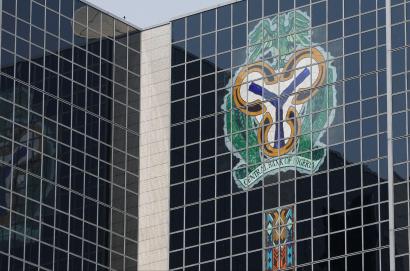Lagos, Nigeria – A High-Profile Anti-Corruption Case
The Economic and Financial Crimes Commission (EFCC) has secured the final forfeiture of a staggering $7 million (₦11.2 billion at an exchange rate of ₦1,600/$1) following a suspicious deposit at the Providus Bank headquarters, Victoria Island, Lagos. The unusual transaction, which occurred on March 26 and 27, 2024, has raised fresh concerns over Nigeria’s anti-money laundering enforcement and the role of commercial banks in shielding questionable funds.
How It Began: The Unusual Cash Deposit
According to inside sources, the funds were deposited in raw cash directly into the bank’s vaults instead of being credited to a customer’s account. This triggered suspicion among staff members, including a whistleblower working covertly with the EFCC.
Under Nigerian law, banks are mandated to file a Suspicious Transaction Report (STR) with the Nigerian Financial Intelligence Unit (NFIU) whenever they encounter high-value or questionable deposits. Providus Bank allegedly failed to file such a report, prompting the EFCC to act on the insider tip-off.


EFCC Swoops In
Acting swiftly, EFCC operatives stormed the Providus Bank headquarters unannounced, interrogated staff members, and seized the $7 million. During questioning, some bank employees disclosed that the funds reportedly belonged to Aisha Achimugu, CEO of Ocean Gate Petroleum and widely described in political circles as a “close associate” of Lagos State Governor Babajide Sanwo-Olu.
Conflicting Accounts
Aisha Achimugu was invited by the EFCC to explain the source of the funds. She denied depositing cash at the bank, claiming instead that she had obtained a $7 million loan facility from Providus Bank which she had not repaid.
Faced with contradictory narratives, the EFCC turned to the public. A paid newspaper advert invited anyone who could legitimately lay claim to the $7 million to come forward. No claimant emerged.
“Ghost Money” in Nigeria’s Banks
With no verified ownership, the EFCC concluded that the money represented proceeds of unlawful activity. The funds were transferred to the Central Bank of Nigeria (CBN) for safekeeping pending judicial action.
Yesterday, a Federal High Court granted the EFCC’s request for final forfeiture, officially transferring the $7 million to the federal government.

Implications for the Banking Sector
This case underscores serious lapses in Nigeria’s banking compliance system. That such a large amount of raw cash could be accepted into a bank’s vault without proper documentation or regulatory reporting raises red flags.
Financial analysts warn that this episode further exposes Nigeria’s vulnerability to money laundering and illicit financial flows. Under international anti-money laundering standards, such as the Financial Action Task Force (FATF) recommendations, banks are required to track, verify, and report high-value transactions to prevent their systems from being exploited for criminal purposes.
Bigger Questions, Unanswered
- Who really owned the $7 million?
- Why did Providus Bank fail to file a suspicious transaction report?
- Is there a bigger syndicate behind the transaction?
For now, these questions remain unanswered. What is clear is that the federal government has pocketed $7 million of unclaimed funds, while the scandal leaves a shadow over Providus Bank’s compliance practices and the broader integrity of Nigeria’s financial sector.
Conclusion
The forfeiture of $7 million—₦11.2 billion in local value—is a significant victory for the EFCC. Yet, it is also a reminder of Nigeria’s fragile financial integrity and the urgent need to tighten compliance mechanisms within the banking system. Until commercial banks are held accountable for failing to report suspicious transactions, cases of “ghost deposits” will continue to cast doubt on the country’s ability to combat corruption and illicit financial flows.
Headlinenews.news Special Investigative Report.




